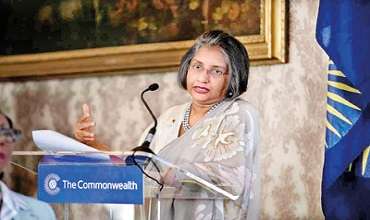FEATURE-Mark of A Leader: Creating A Culture Of Honour!

By Timothy A. Edward
Culture plays a pivotal role in shaping organisations and communities. Leaders build a culture of honour by creating an environment where their employees and followers grow, thrive, collaborate and succeed.
When we think of culture, a range of words come quickly to our minds. Respect, learning, accountability, sustainability, habits, care, reward, recognition, language, partnerships, transparency, integrity, communication and the list goes on and on. However, if we start to sequence and put these words and phrases into some meaningful order or patterns, then we will arrive at five pillars at least. Let us explore these five essential pillars of culture.
Core Values
The first among these is core values. These are the non-negotiable behavioural standards that form and determine the character of our organisations and communities. For example, here are some deep soul-searching core values that successful organisations uphold: Humanity, Community Empowerment, Collaboration, Neutrality, Trust, Integrity, Respect and Honour etc.
Mission
Second, comes mission. Mission is the shared purpose of uniting your entire team from all departments. A team will become simply an unstoppable force when they passionately believe in and pursue the same purpose, which is their mission. Some notable mission statements of successful companies that have rocked and inspired staff, followers, and consumers include: Coca-Cola’s – ‘To refresh the world in mind, body, and spirit’; Warby Parker’s – ‘To inspire and impact the world with vision, purpose, and style.’ LinkedIn’s: ‘To connect the world’s professionals to make them more productive and successful.’ Tesla’s – ‘To accelerate the world’s transition to sustainable energy.’
Performance Expectations
Then, comes performance standards or expectations. Clear performance standards drive daily, weekly, monthly, and yearly achievements. It’s all about numbers.
If an organisation is not clear on these first three cultural pillars, then everything else will become very muddy and unclear and accountability will become a burning issue.
Core Competencies
The fourth pillar is core competencies, which represent the areas of strength that we enjoy as an organisation, or as a people’s group - the technical strength that sets us apart from the rest and gives us an edge over others.
In other words, organisations distinguish themselves through core competencies and technical strengths that set them apart.
Some organisations that have offices around the world proudly state the given below slogans as their core competencies: Drive to achieve results for impact, Finding solutions, Builds and maintains partnerships, Innovates and embraces change, Inclusion and belonging, Thinks and acts strategically, Compassion, Works collaboratively with others.
The Tribe
The final cultural pillar is the people or the ‘Tribe’. It is the people who make the organisation. They can either make or break the culture. It is the people who carry the vision, mission, core values and core competencies within themselves that either makes an organisation or business great, mediocre, or weak. So, discerning leaders take time to discuss and talk about these cultural pillars with the people who are their ‘pride’.
Conclusion
In a real sense, it is the leaders of any organisation who set the tone and colour of an organisation’s culture. Observe the leaders closely, you will be able to understand the culture of an organisation.
It was Peter Drucker who said, if we are not careful, culture will have our strategy for breakfast. So, for leaders, building an organisational culture of honour is one of their top priorities. In fact, it is far more important than strategic planning. Leaders need to spend time attending to culture, like looking after or tending a ‘garden’. The more diligently they work on their cultural gardens, the more outstanding organisations they will create.
So, you want to build an organisation that will benefit your community, country, and the world? It is a great ambition and if you really mean it, then go to work on the culture of your organisation and build a culture of honour because that is the foundation. The stronger the foundation, the higher the reach of that organisation is going to be.
-
Still No Comments Posted.

















Leave Comments